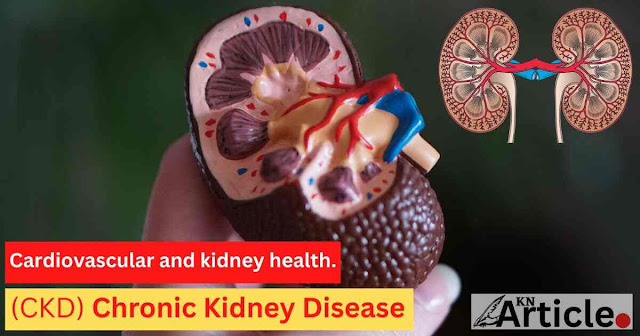In a recent study, published in the Journal of the American Heart Association, researchers from the University of Minnesota School of Public Health (SPH) and Medical School discovered that people aged 27 to 41 who experienced kidney function decline tended to have accelerated progression to more severe chronic kidney disease (CKD), as well as a higher risk of cardiovascular disease and death in middle age.
 |
| Minor-Kidney-function-loss-has-long-term-effects-on-kidney-health |
Yuni Choi, a postdoctoral researcher at SPH and the study's primary author, stated that the findings "add to mounting evidence that maintaining strong kidney function throughout one's life is critical for cardiovascular health and healthy life expectancy."
The Coronary Artery Risk Development in Young Adults (CARDIA) cohort study followed test results over a 20-year period for a total of 4,382 participants. The ages of research participants varied from 27 to 41, with an initial average age of thirty-five. Importantly, the researchers monitored the rate at which study participants advanced through Chronic Kidney Disease risk stages. The study's main conclusions are:
Over the course of the two-decade trial, around 28% of participants advanced to a higher CKD stage.
Young adults who had higher CKD categories had a higher chance of later suffering from cardiovascular events such as heart attacks, strokes, heart failure, or death.
According to research co-lead author and professor at SPH David Jacobs, "this study confirmed the concept that young adulthood is a critically essential time for clinical attention to the status of the kidneys." "People who started with a higher degree of Chronic Kidney Disease were more likely to proceed to more severe stages of the disease considerably quicker than their counterparts who started with no CKD or a milder level of it," the study concluded.
Another intriguing discovery was that various risk variables, notably hypertension and diabetes, partially explained the link of Chronic Kidney Disease stages with cardiovascular disease but not mortality. The findings suggest that excessive excretion of albumin, a blood plasma protein generated in the liver, is an early indicator of illness, regardless of whether it is found with such other risk factors or alone.
According to study corresponding author Daniel Duprez, a professor at the University of Minnesota Medical School, "These findings indicate routine monitoring, including of urinary albumin excretion, Early prevention of kidney disease, cardiovascular disease, and even mortality by commencing in young adulthood has promise."
The University of Alabama in Birmingham, Northwestern University, the University of Minnesota, and the Kaiser Foundation Research Institute are working together on the CARDIA project under the direction of the National Heart, Lung, and Blood Institute.
To better understand the risk factors for the advancement of Chronic Kidney Disease, the researchers intend to build on this work. Additionally, research will be conducted to examine racial inequalities in CKD illness and related problems.
"We always thought that reducing obstacles and bringing healthcare into the house would be effective, but seeing it work out is definitely a nice surprise. We are quite happy with the health equality aspect of the narrative since we were able to demonstrate that it doesn't matter where you reside despite the fact that Black Americans have a four times higher likelihood of having Chronic Kidney Disease.

